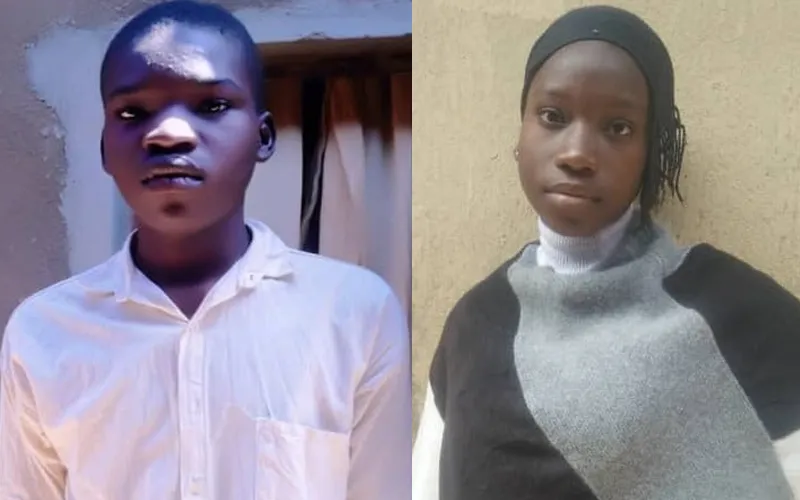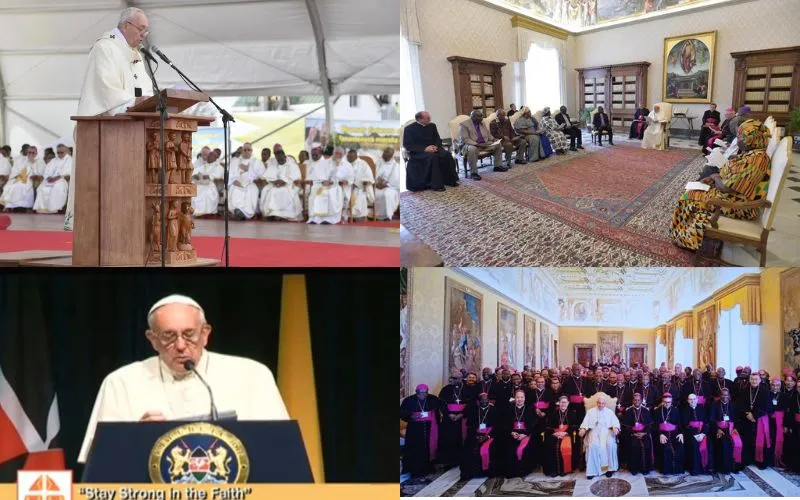Awotoye says that she received news of her brother’s shooting more than a month after the kidnapping.
A woman who had been sent to deliver the news told her, “They have shot five of our boys, including Peter and dumped them in the bush, sending me to deliver this sad news.”
Three of the boys were dead, Awotoye says, adding that a fourth boy died while receiving treatment. It is only Peter who survived and is still nursing the injury.
“To the glory of God, he (Peter) survived, though he talks with difficulty and has little use of his right hand and left leg and he cannot remember some things,” Awotoye says, and adds, “However, I am so glad that he is still alive. Meanwhile, we were praying fervently for my younger sister who was still being held by the Fulani herdsmen.”
Recalling the events of the kidnapping, Peter says, “We walked for days in the dense forest, crossing rivers blindfolded. Finally, we arrived at a camp.”
(Story continues below)
He recalls that on 7 December last year, the kidnappers brought him out together with four other young boys (Dominic, who was 15, Enoch (20), Hassan (19), Ishaku (22).
“They said kun je ku kawo mana kudi daga wurin iyayen ku! (“We will release the five of you to go get money for us from your parents!”) I felt some sort of relief that I was going home not knowing there was more to it—it was all a lie!” Peter says in the ACN United States report.
“The five of us were blindfolded and our hands were tied behind our backs. We walked for about 11 hours. One of the Fulani men shouted siya! (Stop moving!) We stopped. Masa gaba kadan! (“Move to the front a little!”) We obeyed and then they shot the five of us in the head at the same time,” he says.
“When I woke up, I found myself in a hospital, weak, barely talking, moving, nor remembering nor recognizing anything or anybody, I couldn’t feel my right hand and left leg however, with the help of the therapist and help at home, I can talk again, though not clearly, and walk, though not properly, and I am beginning to recall some things. I lost the opportunity to go to school this year. However, I am grateful to God that I am still alive,” he says.
Sharing her part of the ordeal, Elizabeth, who was kidnapped alongside her brother, Peter, says that the suffering they went through at the hands of the kidnappers “is beyond explanation.”
“Once a week we were fed boiled rice with nothing in it, not even salt. Our drinking water came from a dirty river close to the camp. We showered once a week in the same river,” she says.
Elizabeth recalls that she was devastated when he learnt that her brother had been shot.
“I saw them take my brother together with four other boys with the claim to let them go get money from our families. I was scared but happy that they would soon come to our rescue. But later that day, the kidnappers who took my brother and the other boys, returned and said mungamar the su! (“We have killed them!”) I cried bitterly and then started preparing for my own death as I had already lost hope,” she says.
She says that the kidnappers sent their spokesperson to the church demanding 20 million Naira ($48,000) to release the victims.
“The Church said they could only afford 5 million Naira ($12,000),” she says, and adds, “At first the Fulani men refused the 5 million Naira, but later collected the 5 million, saying they should not waste time as they are rushing toward the next operation. They released 45 Church members and kept 15 of us in the camp. We would be set free only if the kidnappers would be given five new motorcycles. Otherwise, we would all be killed.”
“The Church gave 350,000 Naira ($185) for each of the families involved. We were released after the kidnappers were given the 5 motorcycles. In all, we spent one month and 13 days in captivity. I was very happy to see my brother alive. However, I am somewhat afraid of him because of his anger. I just pray that he won’t one day take up a knife and hurt someone. Due to this terrible experience, I am afraid of almost everything. I lost trust in people,” Elizabeth says in the March 21 ACN United States report.
Agnes Aineah is a Kenyan journalist with a background in digital and newspaper reporting. She holds a Master of Arts in Digital Journalism from the Aga Khan University, Graduate School of Media and Communications and a Bachelor's Degree in Linguistics, Media and Communications from Kenya's Moi University. Agnes currently serves as a journalist for ACI Africa.








